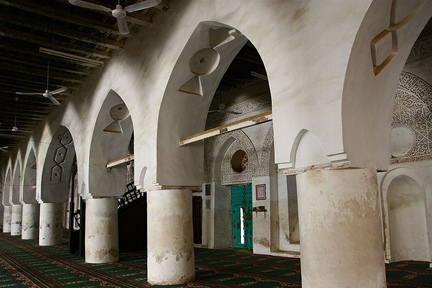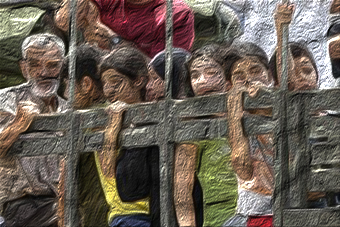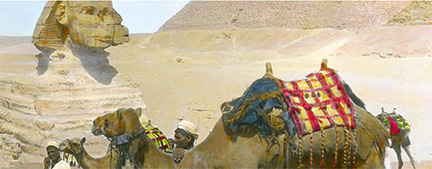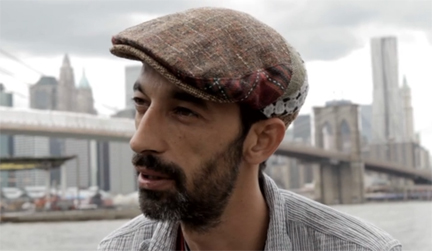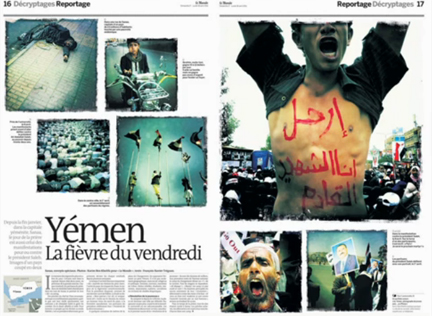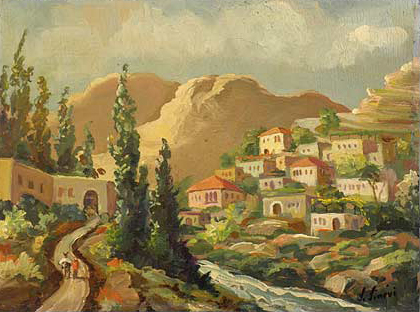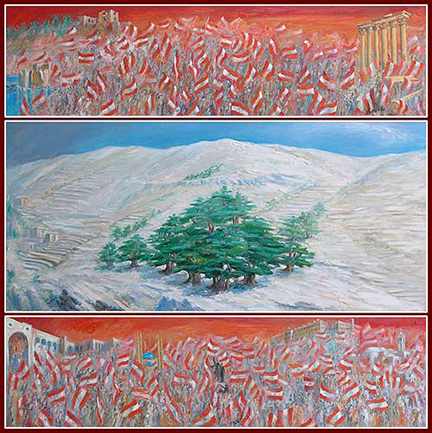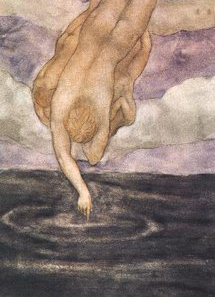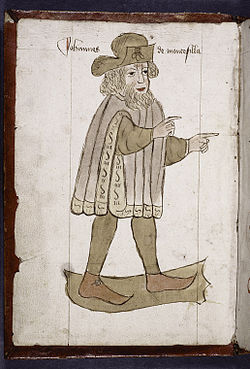
portrait of Sir John Mandeville, from 1459
[One of the most widely read Holy Land travel narratives of the 14th century was attributed to a certain Sir John Mandeville. Some scholars believed it was compiled from writings of It appears to have been compiled from the writings of William of Boldensele, Oderic of Pordenone, and Vincent de Beauvais. Whoever the author, it is a fascinating read for the positive depiction of Islam. The entire book is online, but here is the part on Islam.]
NOW, because that I have spoken of Saracens and of their country — now, if ye will know a part of their law and of their belief, I shall tell you after that their book that is clept ALKARON telleth. And some men clepe that book MESHAF. And some men clepe it HARME, after the diverse languages of the country. The which book Mohammet took them. In the which book, among other things, is written, as I have often-time seen and read, that the good shall go to paradise, and the evil to hell; and that believe all Saracens. And if a man ask them what paradise they mean, they say, to paradise that is a place of delights where men shall find all manner of fruits in all seasons, and rivers running of milk and honey, and of wine and of sweet water; and that they shall have fair houses and noble, every man after his desert, made of precious stones and of gold and of silver; and that every man shall have four score wives all maidens, and he shall have ado every day with them, and yet he shall find them always maidens. Continue reading Travels of Sir John Mandaville, 1
